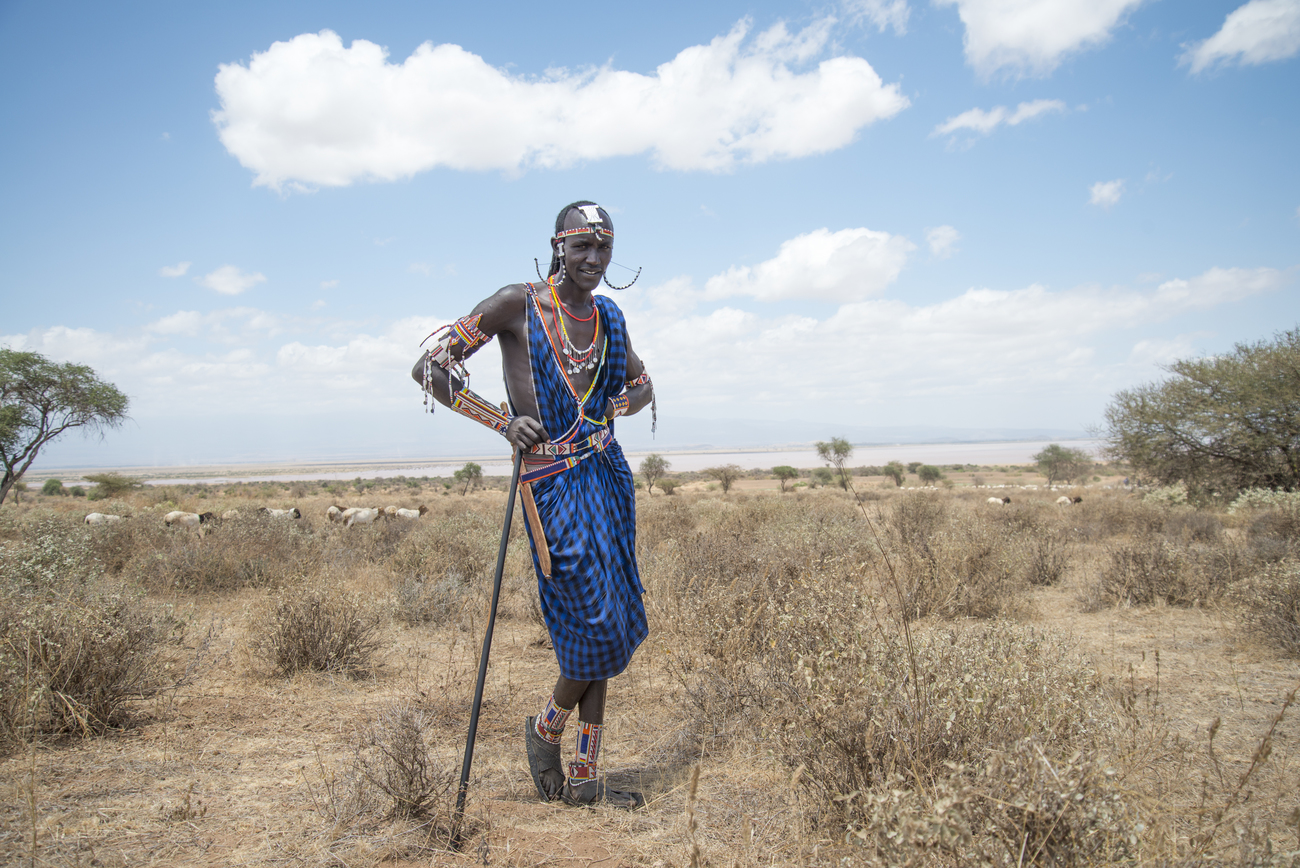Strengthening community support for law enforcement and anti-poaching efforts - East Africa
Local communities play a vital role in the fight against wildlife crimechanging mindsets about wildlife one generation to the next
changing mindsets about wildlife one generation to the next

Traditional stories and myths tell of a long-standing rivalry between the indigenous Maa community and wildlife. Sometimes, this rivalry would be used by Maasai warriors to pit their bravery and strength against lions in a formal lion hunt: the alamayio. Among the Maasai, the warriors – called the ‘Moran’ – form the main system of security for their homes. In their upbringing, they are taught and trained to regard anything that poses threat to their families, property and livelihoods as a rival.
A special generation of Morans in the Greater Kilimanjaro Trans Frontier Conservation Area, however, is rewriting that narrative.
Since 2018, in partnership with Big Life Foundation and African Wildlife Foundation, and with support from the European Union, IFAW has been engaging Maasai warriors, from within and adjacent to the Greater Kilimanjaro area, to listen and learn while establishing integrated and sustainable solutions towards stopping wildlife cruelty.
Human-wildlife conflict (HWC) is considered one of the biggest threats facing wildlife in the Greater Kilimanjaro area due to retaliation. Areas with increased levels of HWC are also more susceptible to poaching which is often exploited as a cover for poaching activities. In addition, for many years, HWC has significantly hampered support from communities with regard to wildlife conservation efforts.
Understanding this serves as a valuable asset in mastering some drivers of retaliatory acts, closing loopholes that cultivate illegal wildlife activities, and serving as an entry point for conversations with communities about conservation. Through engaging the Moran, we have been able to learn about their indigenous traditional knowledge and leverage their strong system of security to reinforce the same for wildlife. We have also worked to build firm, set beliefs about wildlife that can be passed down to other generations.
Sontika Manyatta, which forms the headquarters of Morans from all across Kajiado South county in Amboseli West has been vital in bringing together these young guardians. Sontika, the chief of Morans within this area has been especially instrumental in ensuring that the well-structured hierarchies through which discipline and traditional knowledge are passed to Morans, are put to use in educating and conveying a different message about wildlife. An immediate and direct impact of this is Morans seeking alternative ways to measure their courage and bravery as opposed to pursuing lions.
As a result, in areas where we have been engaging Morans we have registered a significant decrease in retaliatory attempts and an increase in tip-offs and reporting. This contributed to at least 377 wildlife and one human life that were successfully saved in 2019.
We have thus far been able to train and educate at least 400 Maasai warriors in Amboseli and bordering parts of Tanzania. This is the first and only generation of morans within the Greater Kilimanjaro area that has been recognized and involved in conservation efforts. While speaking to them, most were quoted saying that their mindset and how they viewed wildlife has changed and that they now understand their key role in protecting not only their homes, but wildlife as well.
While there is much more to be done, we celebrate the power that this wealth of knowledge plays in setting precedents for upcoming generations of Morans as the current graduates to new roles of leadership.
This blog was produced for the Strengthening Community Support for Law Enforcement and Anti-Poaching Efforts in the Greater Kilimanjaro Trans Frontier Conservation Area (TFCA) project, which is co-funded by the European Union and implemented by IFAW in partnership with African Wildlife Foundation (AWF) and Big Life Foundation. Its contents are the sole responsibility of IFAW and do not necessarily reflect the views of the European Union.
Related content
Every problem has a solution, every solution needs support.
The problems we face are urgent, complicated, and resistant to change. Real solutions demand creativity, hard work and involvement from people like you.